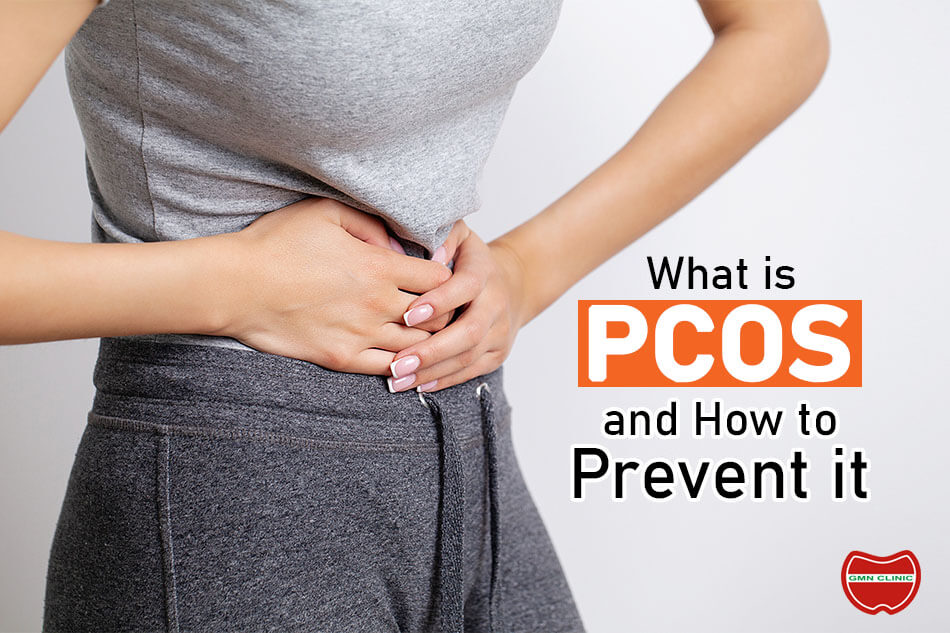PCOS or Polycystic Ovarian Syndrome is an endocrine disorder, which occurs due to an imbalance in hormone levels. Women suffering from PCOS produce high levels of male hormones (primarily androgens). Therefore, it leads to irregular menses and difficulty in getting pregnant. One out of ten women suffer from PCOS and the exact cause is unknown.

PCOS affects women of childbearing age (between 15-44). Although the cause behind polycystic ovarian syndrome is unknown, experts emphasize genetics. However, poor lifestyle choices, insulin resistance, and inflammation can also lead to PCOS.
Women suffering from PCOS have a common issue- hormonal imbalance. Therefore, it leads to weight gain, missed periods, and in some cases, infertility. Moreover, in one of the studies, it was found that approximately 70% of women suffering from PCOS remain undiagnosed.
What causes PCOS?
PCOS affects a woman’s ovaries and progesterone and estrogen levels. These hormones play a vital role in regulating the menstrual cycle. Other hormones, like Follicle-stimulating hormone and Luteinizing hormone released by the pituitary gland, result in ovulation. Women with PCOS have imbalanced hormone levels, which affect the ovulation process. Some common symptoms of PCOS are.
- Multiple cysts in the ovaries.
- Increase in the male hormone levels.
- Missed or irregular menstrual cycle.
Doctors, as of now, are not aware of the exact cause of PCOS. A few primary reasons are genetics, insulin resistance, etc. Nevertheless, these are a few guessed symptoms of PCOS.
- Genes
Some studies revealed that PCOS often runs in families. However, not one gene is responsible for that. Multiple genes contribute to PCOS.
- Insulin Resistance
Approximately 70% of women having PCOS suffer from insulin resistance. Do you know what insulin resistance is? In this condition, your body’s cells fail to utilize the insulin levels. Pancreas produces insulin so that your body can use sugar from foods to produce energy. However, the demand for it increases, if your body’s cells fail to utilize insulin. High insulin levels force the ovaries to secrete male hormones.
- Inflammation
PCOS often leads to inflammation. Multiple studies revealed inflammation causes increased levels of androgen.
Symptoms of PCOS
Most women notice the symptoms during their first period. However, others find out about PCOS post-weight gain. Another common symptom is problems getting pregnant. These are a few symptoms of PCOS.
- Irregular periods – Ovulation leads to regular menses. Women suffering from PCOS don’t ovulate, which leads to irregular periods.
- Heavy bleeding – The uterine wall builds up beyond 28 days since irregular periods become normal in PCOS. As a result, it leads to heavy bleeding.
- Hirsutism – It is another common symptom in polycystic ovarian syndrome where thick hair grows on the face, back, belly, and chest. About 70% of women dealing with PCOS suffer from hirsutism.
- Acne – Your skin feels oily than usual due to high levels of male hormones. It leads to painful acne on the face and chest.
- Unexplained weight gains – Approximately 80% of women struggling with PCOS are overweight or obese.
PCOS treatment is possible by taking guidance from a dietitian and by following a healthy lifestyle.
Diet and Lifestyle
Proper treatments are not yet available as the causes of PCOS are still unknown. However, a few researchers believe that adopting holistic approaches can significantly reverse the condition. A healthy diet and regular exercise are useful to reverse the condition. You will start getting regular menses on losing 5-7 kg weight. Besides, losing weight reduces insulin levels and controls the risk of diabetes.
You can follow any diet plan. However, studies proved that focusing on a low glycemic diet is more effective. Therefore, it is best to consult a dietician to help cure PCOS. Dieticians make customized diet plans as per your symptoms. A dietician will include healthy foods like vegetables, seeds, nuts, and yogurt. Cruciferous vegetables like broccoli, spinach, cauliflower, and kale are PCOS-friendly. Moreover, you can also include berries and seeds (pumpkin, flaxseeds, and chia seeds) as they are high in antioxidants and reduce male hormone levels.
Exercise is also required with a healthy diet. A dietician helps in creating a suitable workout plan for effective weight loss. Indulging in moderate to high-intensity workouts helps in improving PCOS. However, focusing more on weight training is the best solution.
Final words
PCOS might seem like a non-harming disorder. However, it invites many life-threatening diseases, such as type-2 diabetes, endometrial cancer, and heart diseases. Moreover, you might face infertility issues and irregular periods due to high levels of androgen. Therefore, it is best to consult a gynecologist to restore your monthly cycles.
